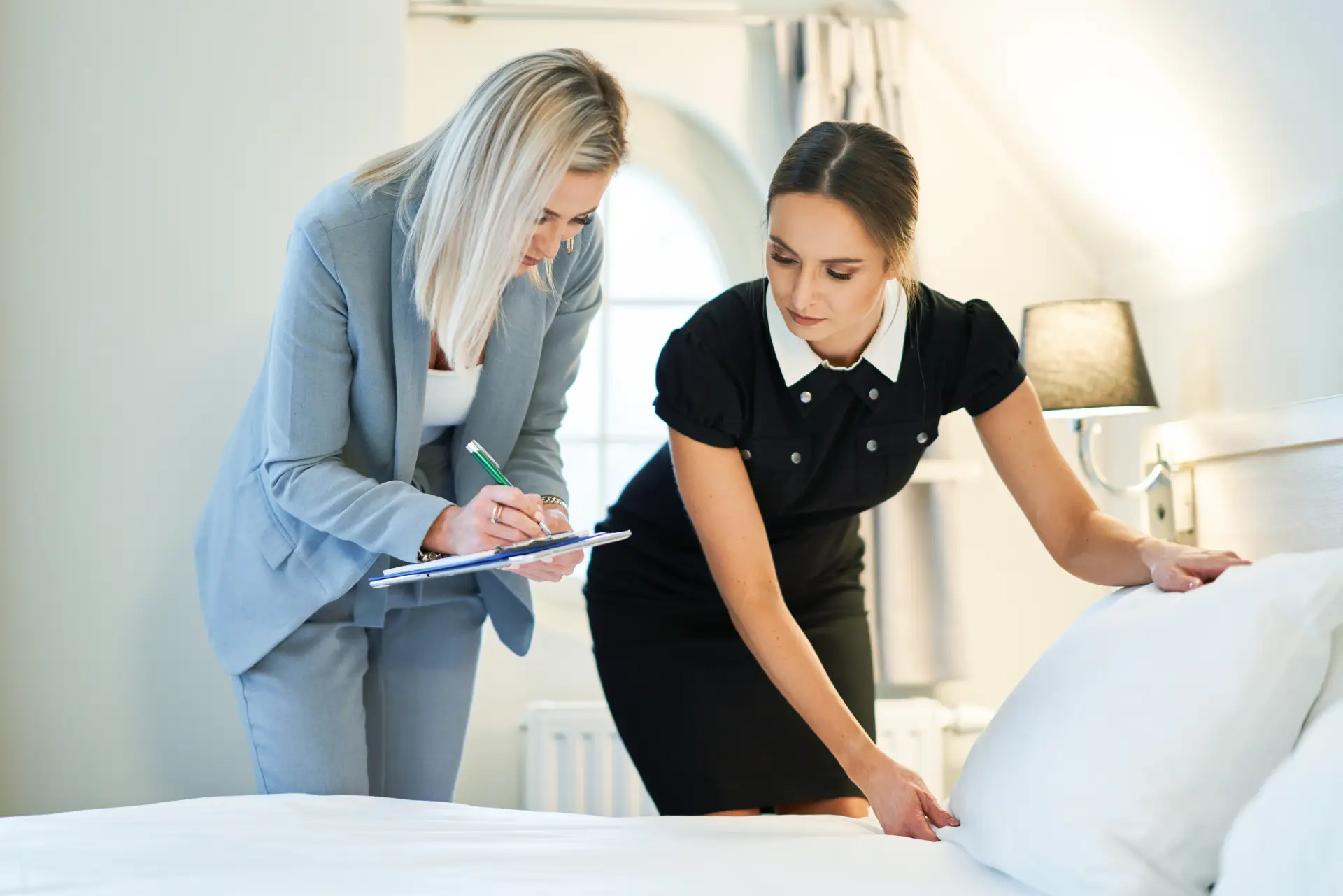That hotel room you’re paying $300 per night for contains 10 times more bacteria than hospitals allow. Despite record-high room rates, hotel room cleanliness secrets reveal a disturbing truth: cleaning standards have collapsed since the pandemic.
Your sparkling room harbors dangerous pathogens on every surface. Dirty hotel rooms across all price ranges hide shocking contamination that staff will never admit. From furniture polish used on drinking glasses to toilet rags wiping coffee makers, hotel cleaning practices prioritize speed over safety.
You’re about to discover what really happens during that “deep clean” – and how to protect yourself from getting sick.
1. Your “Clean” Room Is a Bacteria Breeding Ground
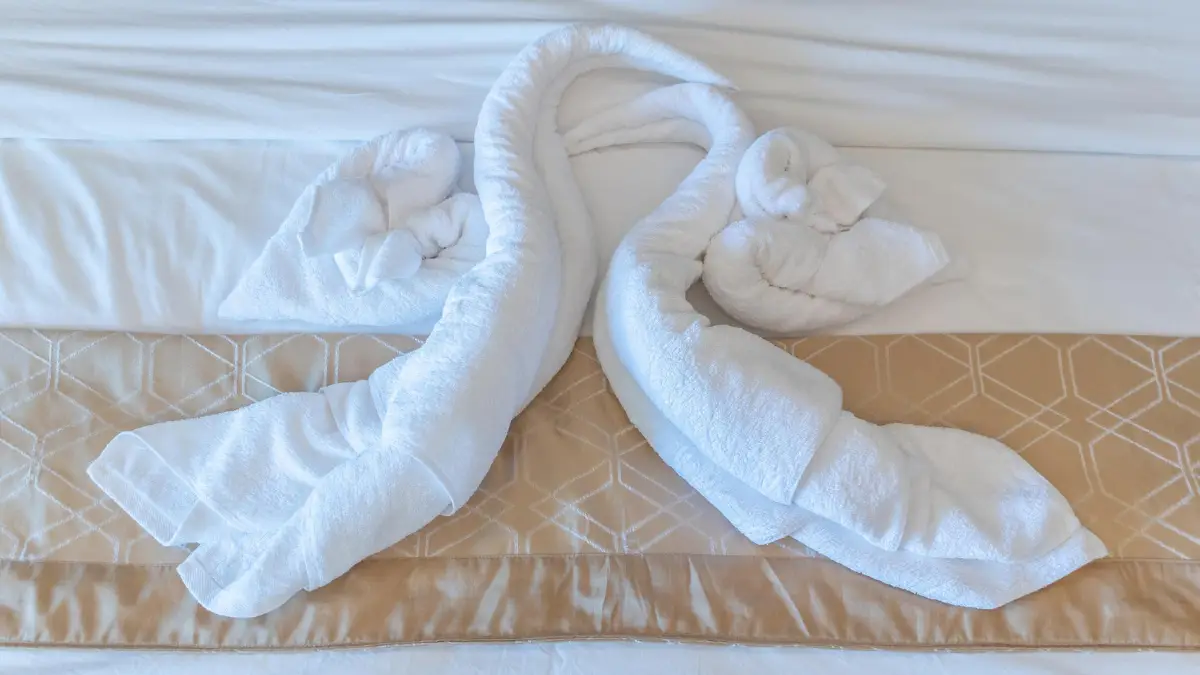
That sparkling hotel room you just checked into? It’s crawling with more germs than you can imagine.
A massive study across 68 hotels in Europe and Asia found over 4,300 different types of bacteria living in hotel rooms. That’s not a typo. Over four thousand bacterial species are sharing your space right now.
Here’s the part that will shock you: dirty hotel rooms at expensive properties are often worse than cheap ones. The University of Houston tested TV remotes and found luxury hotels had 2,002,300 bacterial colonies per square inch. Budget hotels? Much cleaner.
Your bathroom counter tells the same scary story. Five-star hotels averaged over 1 million bacterial colonies per square inch. That’s eight times dirtier than 3-star properties. You’re paying more money for more germs.
Hotel bacteria doesn’t just mean harmless dust. We’re talking about dangerous stuff. MRSA lives on your phone. E. coli grows on bathroom fixtures. Norovirus hides on surfaces for days, waiting for the next guest.
The bedspread you’re touching right now? There’s a 45% chance it failed basic cleanliness tests. One hotel in Montreal hit 26,124 ATP units of contamination. To put that in perspective, anything over 300 ATP units means “dirty.”
Hotel contamination spreads everywhere because housekeepers use the same cloth to clean your toilet and your coffee cup. They have 30 minutes to clean your entire room, so corners get cut.
These aren’t isolated problems at sketchy motels. The continental study tested major hotel chains across multiple countries. The results were consistently bad everywhere.
Your remote control, light switches, and door handles are covered in germs that can make you sick. The fancy hotel you’re staying in might be harboring more bacteria than a hospital allows in patient rooms.
The worst part? Hotel staff know this. They just hope you don’t.
Now you know why that “clean” room doesn’t feel so clean anymore.
2. The 30-Minute Time Crunch That’s Destroying Standards
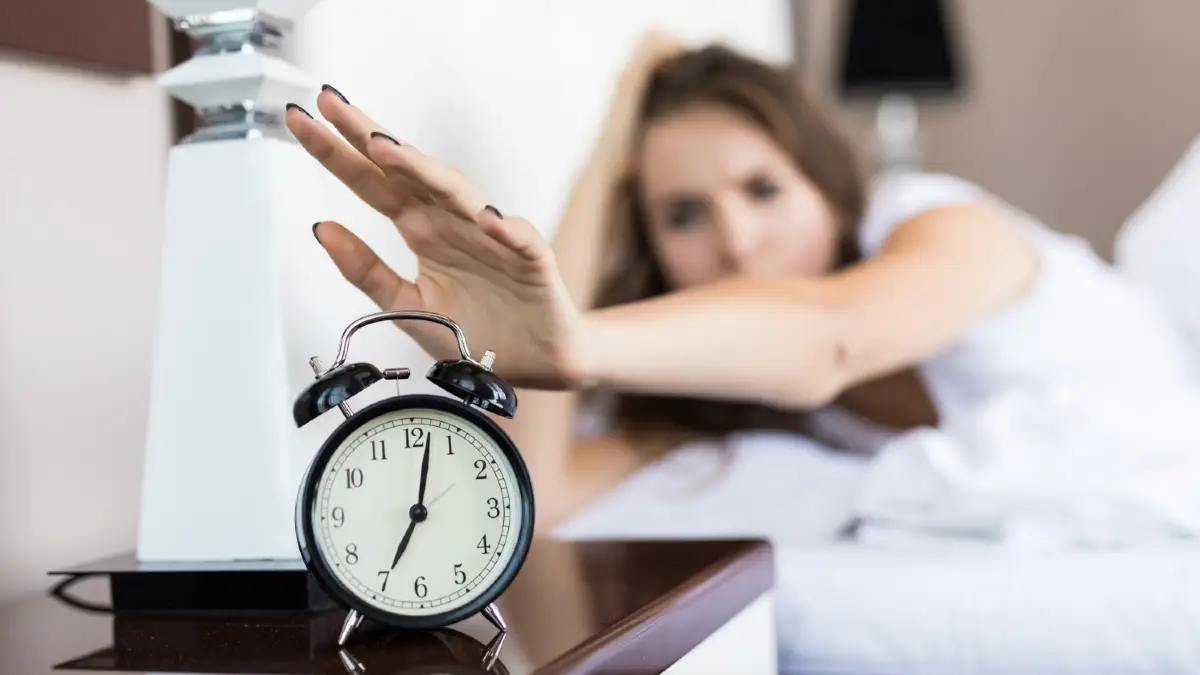
Want to know why your hotel room isn’t actually clean? It’s simple math that doesn’t add up.
Housekeepers get 28 to 40 minutes to clean your entire room. Think about that. Hotel cleaning time includes stripping beds, scrubbing bathrooms, vacuuming floors, and wiping every surface. All in less time than it takes you to shower and get dressed.
The daily quota makes it worse. Each housekeeper must clean 10 to 16 rooms per shift. Miss your quota? You might lose your job.
This impossible schedule forces dangerous housekeeping shortcuts that put your health at risk. A former hotel worker on Reddit admitted the truth: “Because of the time crunch, most maids skip vacuuming, scrubbing the bathtub, and cleaning under the bed.”
Here’s the part that will make you sick. Literally.
Housekeepers use one cloth to clean everything. The same rag that wipes your toilet also cleans your drinking glasses. A five-star hotel worker revealed: “I’ve definitely seen maids polishing glasses with the same cloth they just used to dust the room.”
This isn’t just gross. It spreads fecal bacteria from bathrooms to every surface you touch. Your phone, remote control, and coffee cups get contaminated with germs from toilets.
Hotel housekeeping secrets get worse when you learn about the equipment situation. Senior staff grab the best rooms where guests might leave expensive items behind. New workers get stuck with broken vacuum cleaners and torn cleaning supplies.
One housekeeper explained the reality: “I hated leaving a room not fully cleaned, but there is absolutely nothing you can do about it.”
The hotels know this system doesn’t work. They just don’t care because it saves money.
Your “clean” room is the result of an impossible time limit that forces workers to choose between keeping their jobs and actually cleaning your space.
Guess which one they pick?
3. Drinking Glasses Are Cleaned with Furniture Polish
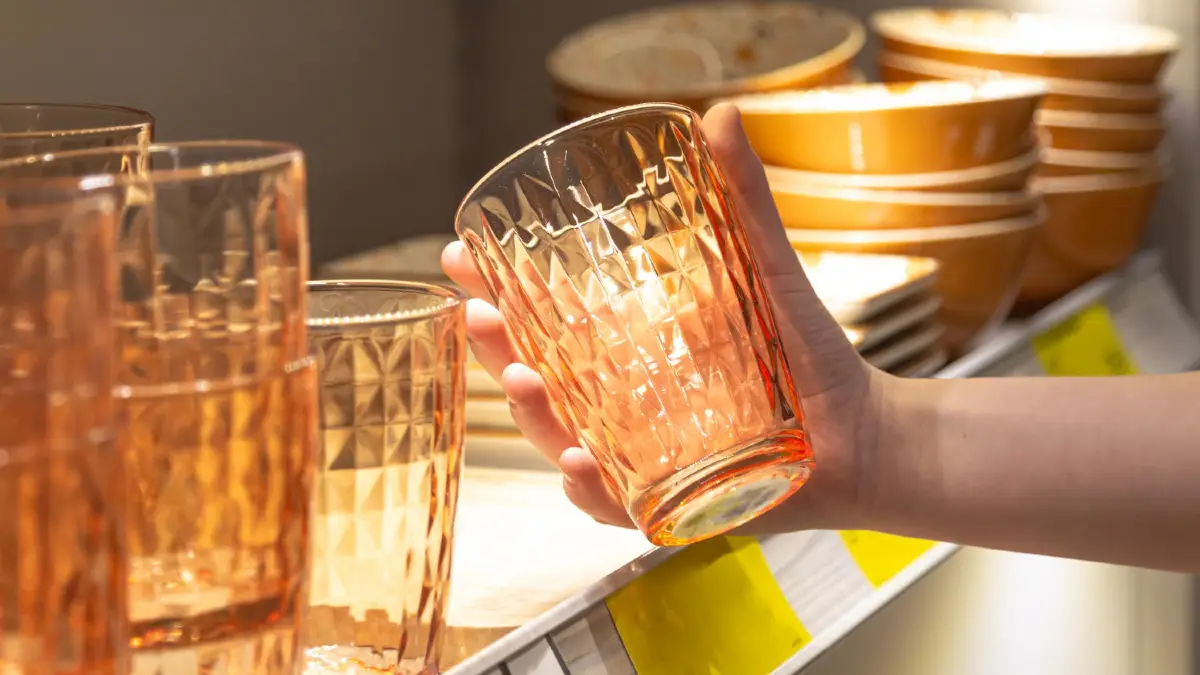
Never drink from hotel drinking glasses without washing them yourself first. Here’s why.
ABC News sent undercover investigators to 15 hotels across the country. They tested how staff cleaned glasses in guest rooms. Eleven hotels failed basic cleanliness standards.
The worst part? What housekeepers actually use to clean your glass.
Hotel worker Jacob Tomsky revealed the dirty truth: “Many housekeepers use furniture polish because it leaves the glasses spot-free.” Yes, furniture polish. The same stuff you spray on wooden tables.
But it gets worse. TikTok user @_sourqueen, who works in housekeeping, explained that dirty hotel glasses “sometimes don’t even get treated with soap and may just be rinsed, then dried with the same rag that they used to clean the rest of the room.”
That “rest of the room” includes toilets.
The ABC News footage caught workers at upscale hotels spraying glasses with mildew remover. The product label clearly said “harmful if swallowed.” They used it anyway because it made glasses look clean.
Hotel glass cleaning follows a simple pattern across the industry. Workers grab whatever chemical makes glass look clear fastest. Soap takes too long. Water leaves spots. Furniture polish and mildew remover work faster.
The same cloth that wipes bathroom fixtures dries your drinking glass. Cross-contamination spreads germs from the toilet straight into your mouth.
One former housekeeper admitted: “I’ve seen maids polish glasses with the same cloth they just used to clean the bathroom.”
Your glass might look sparkling clean. But it’s been treated with furniture polish, mildew remover, or toilet germs.
Sometimes all three.
Want to stay healthy? Wash every hotel glass with hot water and soap before you use it. Or better yet, bring your own cup.
4. Remote Controls Harbor More Germs Than Toilet Seats
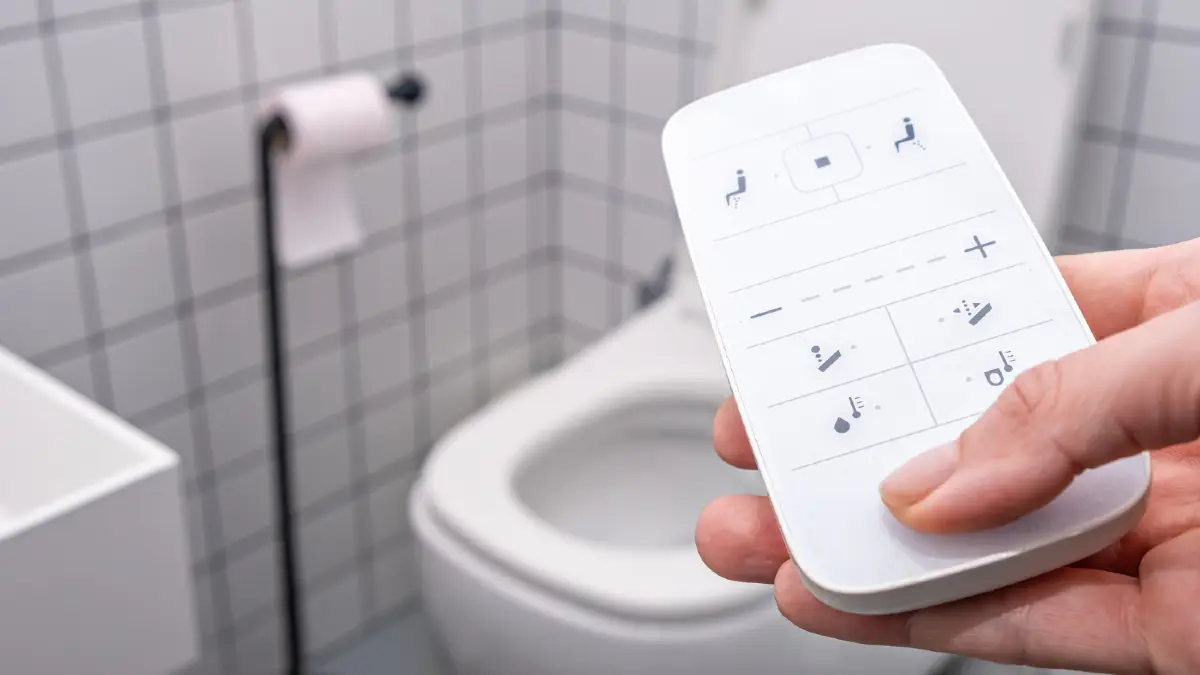
That TV remote in your hotel room is the dirtiest thing you’ll touch during your stay. And you probably just used it to change channels.
Hotel remote control germs include some nasty stuff. Live Science found MRSA, E. coli, and respiratory viruses living on remotes across multiple hotels. These are the same germs that cause serious infections and stomach problems.
Here’s what makes remotes so dangerous. You hold them close to your face and mouth while watching TV. But housekeepers almost never clean them properly.
The University of Houston tested remotes at different hotel types. Luxury hotels had 10 times more bacteria than budget properties. Your expensive room comes with extra germs at no charge.
Hotel room bacteria doesn’t stop at remotes. Light switches test just as bad. So do door handles and phone receivers. CBC News found dangerous pathogens on every high-touch surface they tested.
Why are these dirty hotel surfaces so contaminated? Simple. Housekeepers skip them during cleaning. They focus on beds and bathrooms because guests notice those. A dirty remote looks the same as a clean one.
Phone receivers are especially gross. People breathe directly on them, then the next guest picks up the same germs. Testing shows phones consistently harbor respiratory viruses that spread between guests.
Every surface you touch without thinking twice is crawling with bacteria from previous guests. Your light switch has been touched by dozens of people before you.
Want to stay healthy? Wipe down every remote, switch, and handle with disinfecting wipes before you touch them.
Your health is worth the extra minute.
5. Bedspreads Are Only Changed When Visibly Stained
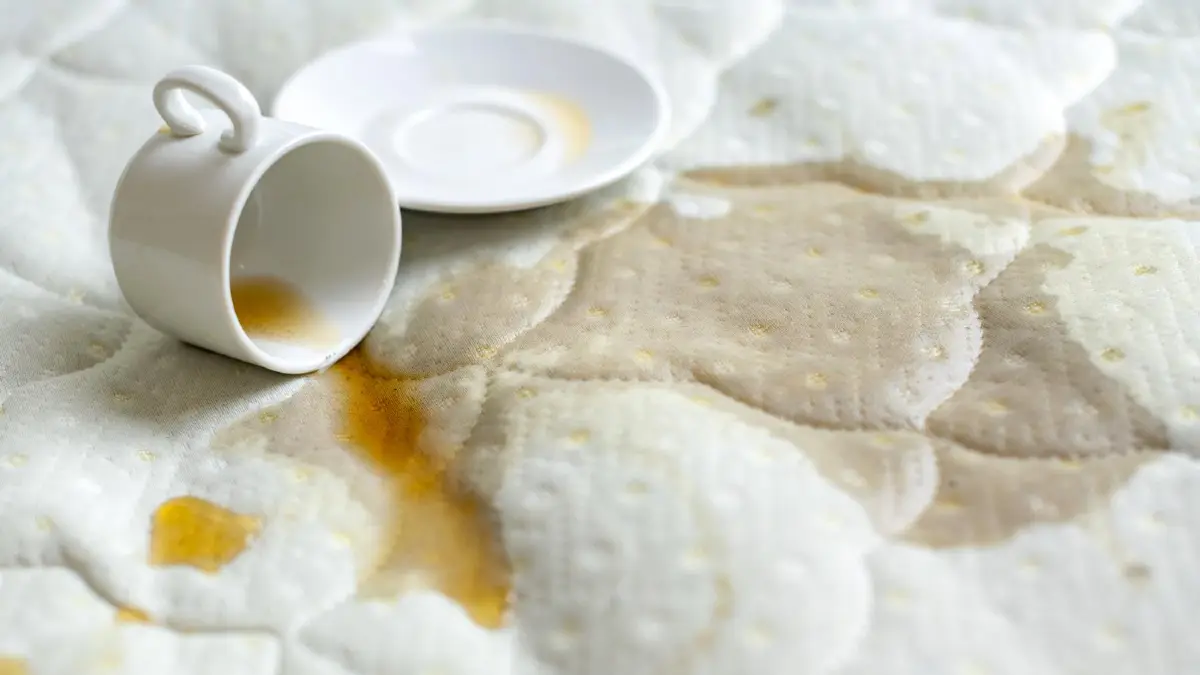
That decorative bedspread you’re lying on right now? It hasn’t been washed in weeks. Maybe months.
Hotel bedding cleanliness follows a simple rule that will make your skin crawl. Bedspreads and blankets only get cleaned when housekeepers can see stains. No visible marks means no washing.
A Reddit housekeeper confirmed what industry workers know: “The blankets are changed only if they have marks on them. It was probably on the floor before you used it too.”
Think about that. Your bedspread was likely dropped on the bathroom floor during cleaning. Then put back on your bed without washing.
Former hotel staff reveal the truth about hotel bedspreads dirty practices on TikTok. One worker warned guests that duvets are “NOT meant to be slept on” and should be “folded and placed on the floor or chair” immediately when you arrive.
Hotel blanket cleaning schedules shock even industry insiders. Some properties wash bedspreads once per month. Others wait until guests complain about obvious stains or smells.
Testing proves how bad this gets. Studies show 45% of hotel bedspreads fail basic bacterial cleanliness standards. These items collect skin cells, hair, sweat, and worse from every guest who touches them.
Multiple TikTok housekeeping workers respond to viral cleaning videos with the same advice: remove decorative bedding the moment you walk into your room.
One worker explained: “These bedspreads have been touched by dozens of people before you. We don’t have time to wash them between guests.”
Your bedspread looks clean because housekeepers smooth it out. But it’s harboring germs from every previous guest who used your room.
Strip it off immediately. Your health depends on it.
6. Daily Cleaning Is Now Optional (Despite Premium Pricing)
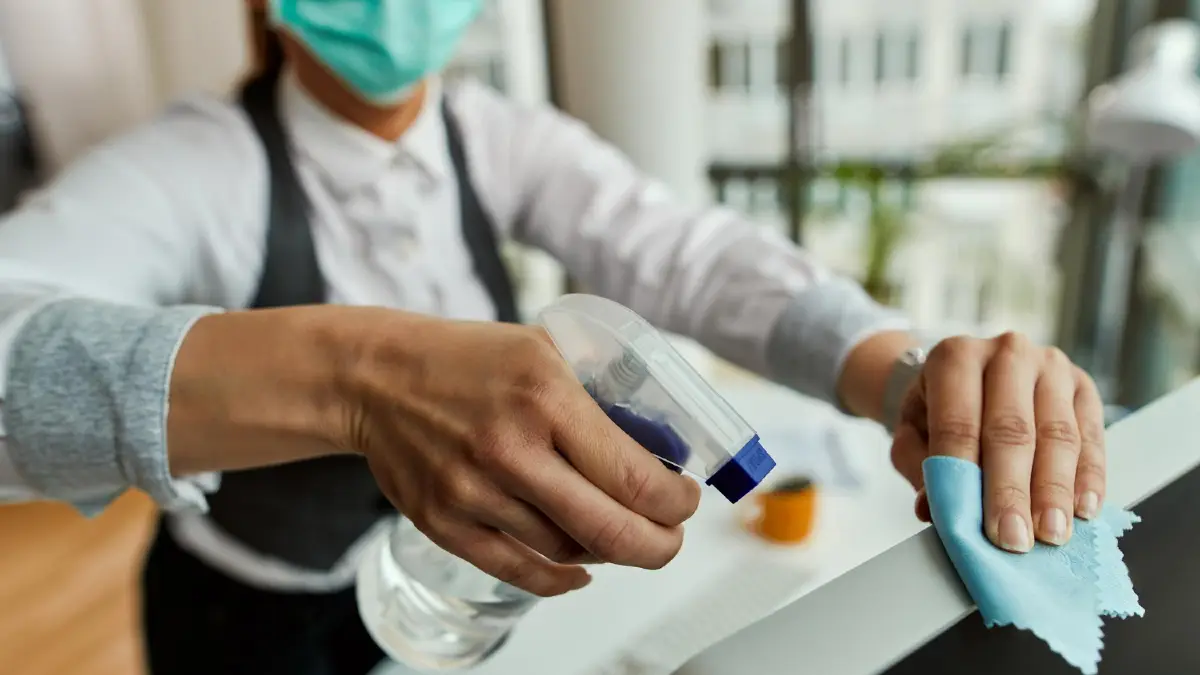
You’re paying $300 a night for your hotel room. But hotel daily cleaning eliminated means your room might not get cleaned for days.
Here’s how hotels are making record profits while giving you less service.
A Fortune investigation revealed the math behind this scam. Hotels now need only 30% occupancy to break even, down from 40% before the pandemic. Why? They cut cleaning costs in half.
Hotel cleaning costs add up fast. A 100-room hotel saves $110,000 per year by cleaning rooms every third day instead of daily. That’s pure profit while you pay full price.
The staffing numbers tell the real story. Hotel staff-to-occupancy ratios hit a 30-year low in 2024. There simply aren’t enough people to clean your room properly.
MGM housekeeper Xochitl Mendez, who’s worked 14 years in hotels, explains what guests experience: “The rooms aren’t cleaned every day, and every day we see guests who are super, super annoyed. They’re angry and they insult us.”
Hotels now market reduced hotel services as a feature. They call housekeeping “flexible” or “available on request.” You’re paying $200 to $500 per night for the privilege of asking for basic cleaning.
Guest satisfaction data proves this strategy backfires. The American Hotel & Lodging Association found 59% of travelers consider room cleanliness the most important factor when choosing hotels.
But TrustYou’s 2024 research shows room cleanliness became the most damaging negative factor in hotel scores. Poor cleanliness causes -9.52 point deductions in guest satisfaction ratings.
The disconnect is obvious. Hotels save money by cutting cleaning while guests pay more and expect better service.
Industry executives know this system doesn’t work for guests. They just don’t care because it works for their bank accounts.
Your expensive hotel room comes with reduced service as the new normal. And there’s no discount for getting less than what you pay for.
7. The Cloth That Cleans Your Toilet Also Cleans Your Coffee Cups
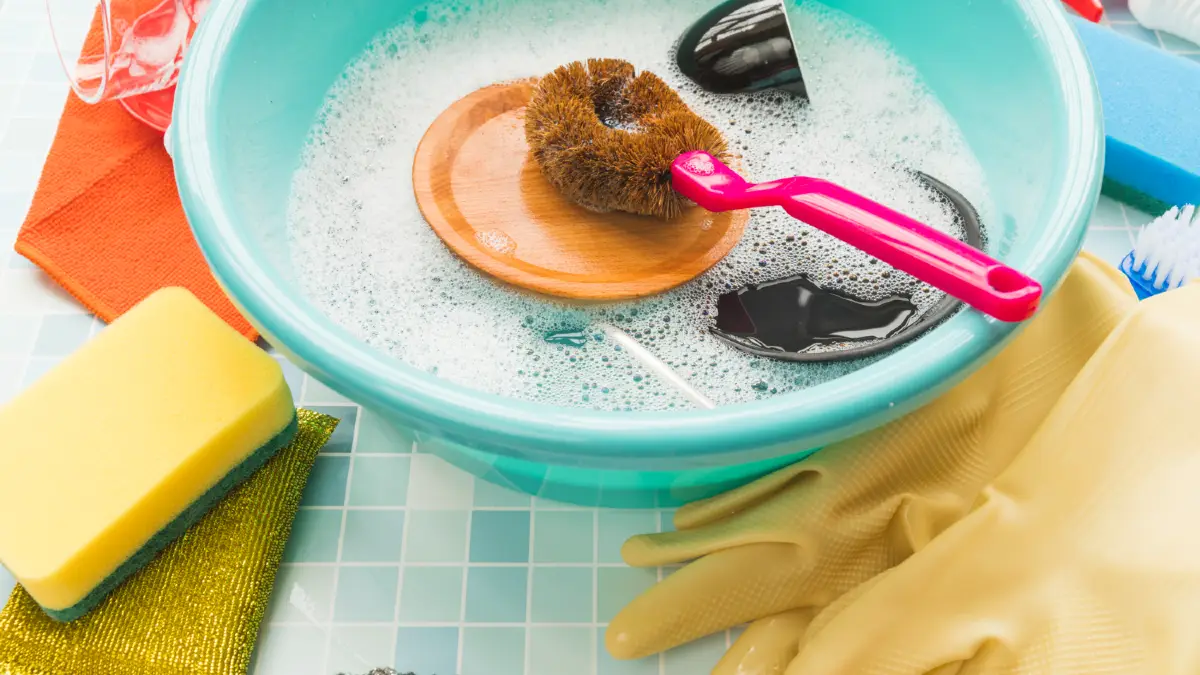
Here’s the most disgusting hotel cross contamination secret of all. The same cloth that scrubs your toilet bowl wipes down your coffee maker five minutes later.
Multiple Reddit housekeeping workers admit this happens everywhere. One explained: “We used one cloth to wipe everything including the toilet.” Another confirmed: “Same rag for the bathroom and kitchen area. There’s no time to change cloths between areas.”
Hotel cleaning supplies are limited by design. Housekeepers get one or two cloths per room. They can’t waste time running back and forth to get fresh ones.
The 30-minute time crunch creates this nightmare. Clean the bathroom first? That cloth stays with you for the rest of the room. Kitchen area, coffee maker, drinking glasses – all wiped with the toilet cloth.
TikTok housekeeping workers openly discuss these dirty hotel practices in response to viral cleaning videos. They’re not proud of it. They’re just honest about impossible working conditions.
Coffee makers get special attention from contaminated cloths. Workers wipe the outside, the coffee pot, and the water reservoir with whatever cloth they have. Fecal bacteria spreads to everything you use to make morning coffee.
Former employees across luxury and budget hotels confirm the same pattern. One cloth, entire room, no exceptions.
Your coffee tastes weird? Now you know why.
Want safe coffee? Bring your own maker or stick to sealed bottles. Never trust anything that gets “cleaned” in your hotel room.
8. Ice Machines Are Germ Dispensers
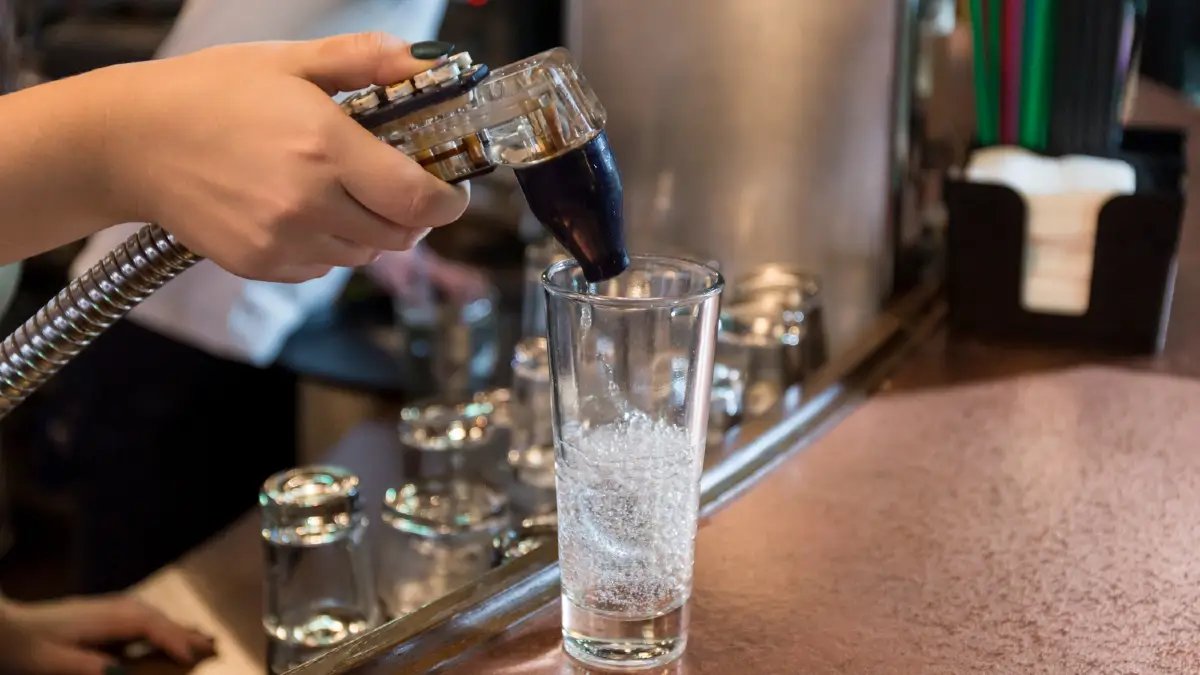
That ice machine down the hall is crawling with more germs than the toilet in your room. And you’re about to put those ice cubes in your drink.
Hotel ice machine germs thrive in the perfect breeding ground. Dark, moist, and warm – ice machines create ideal conditions for mold and bacteria to multiply for months.
Hotels rarely deep-clean these machines. The internal components are hard to reach, so staff skip them during regular maintenance. Dirty hotel ice accumulates layers of biofilm that you can’t see but definitely taste.
Studies prove your ice is dirtier than tap water. Testing shows ice machines regularly harbor dangerous bacteria that cause serious illness.
The shared scoop makes everything worse. Hundreds of guests grab the same handle every day, spreading germs between every person who gets ice. Hotel ice contamination spreads from guest to guest through that single metal scoop.
Health risks include norovirus, respiratory infections, and severe gastrointestinal illness. The bacteria living in ice machines can put you in the hospital.
One former hotel maintenance worker admitted: “We’re supposed to clean ice machines monthly. Sometimes it’s every three months, sometimes longer.”
Want safe drinks? Buy bottled water or bring your own ice. Skip the hallway ice machine completely.
Your stomach will thank you later.
9. Bathroom “Deep Cleans” Skip the Most Important Areas
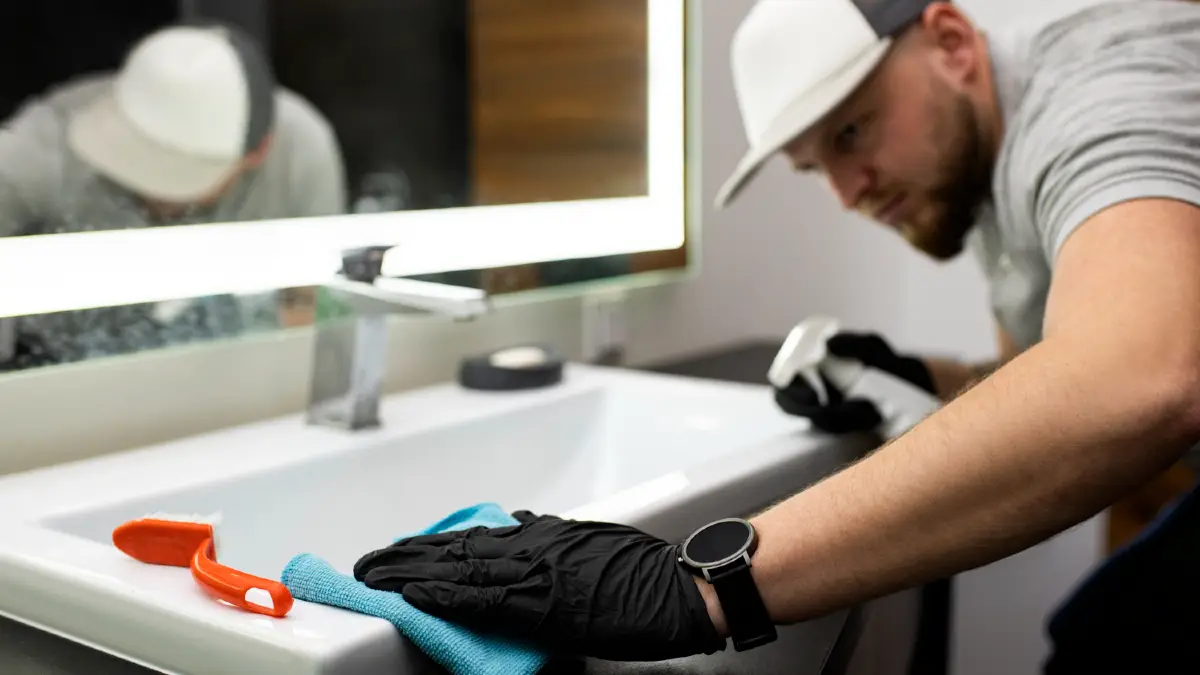
Your hotel bathroom got a “deep clean” before you arrived. But the most dangerous spots never got touched.
Hotel bathroom cleaning focuses on what guests can see. Toilets get wiped down. Mirrors get polished. The floor gets mopped. But the real contamination hides where housekeepers can’t easily reach.
Behind your toilet, bacteria multiplies in dark corners that never see cleaning cloths. Under the sink, mold grows in puddles that have sat there for months. These areas harbor dangerous germs that spread every time you walk around barefoot.
Your shower head and faucet aerators are breeding grounds for bacteria. Water sits inside these fixtures between guests, creating perfect conditions for harmful organisms to multiply. Bathroom contamination flows directly into the water you use to brush your teeth.
Bathroom fans spread germs throughout the room when they’re not cleaned. Instead of removing moisture, dirty fans blow bacteria and mold spores around your bathroom every time you flip the switch.
Grout and tile seams accumulate black mold that can cause serious respiratory problems. Hotel deep cleaning skips these areas because they’re hard to scrub and take too much time.
The most disgusting truth? Toilet brushes get reused between rooms without proper sanitization. The same brush that cleaned someone else’s toilet mess gets used in your bathroom.
Light switches, door frames, electrical outlets, and the space behind bathroom doors never get cleaned. These high-touch areas collect germs from every previous guest.
Want a truly clean bathroom? Bring disinfecting wipes and clean these missed areas yourself.
10. Luxury Hotels Are Often Dirtier Than Budget Properties
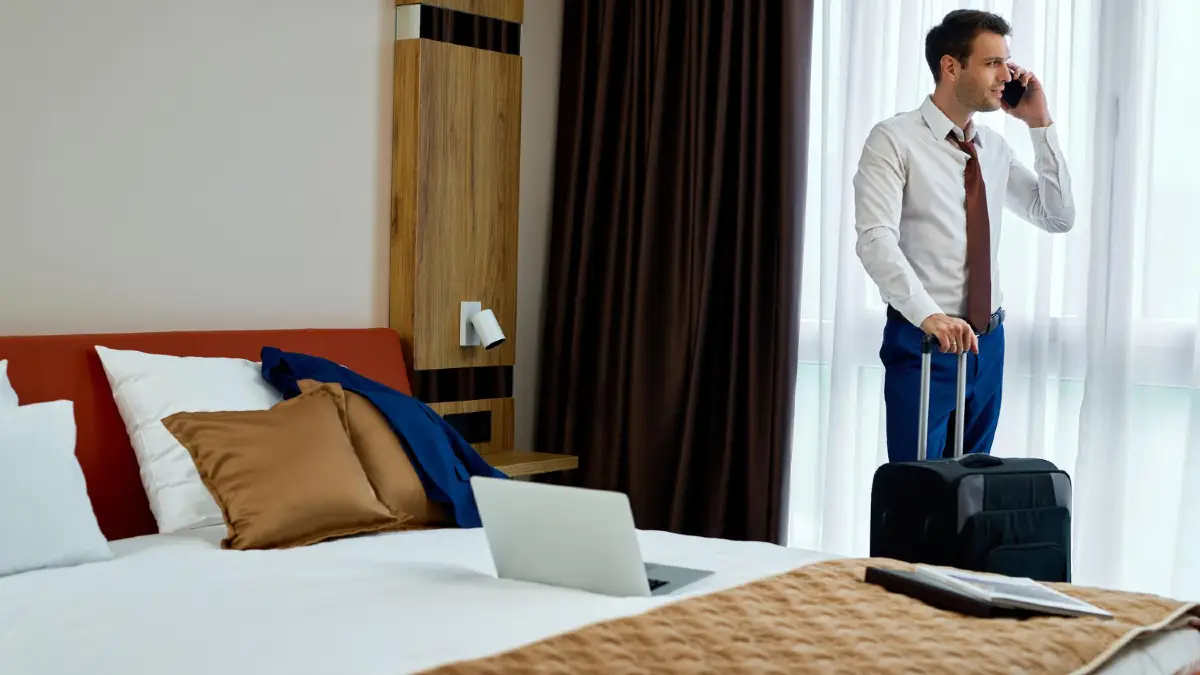
Paying $500 a night for a luxury hotel? You’re getting more bacteria for your money.
Luxury hotel cleanliness studies reveal a shocking truth. Five-star properties consistently test dirtier than budget hotels across multiple research projects.
The University of Houston tested remote controls at different hotel tiers. 5-star hotel dirty results showed 2,002,300 bacterial colonies per square inch. Three-star hotels averaged far less contamination on the same surfaces.
Bathroom counters tell the same story. Expensive hotels bacteria counts reached over 1 million colonies per square inch at luxury properties. That’s eight times higher than mid-tier hotels.
ATP testing across hotel categories confirms this pattern. The fanciest rooms often score worst for biological contamination.
Why do expensive hotels perform so poorly? Same time pressure, more stuff to clean.
Luxury properties pack rooms with decorative pillows, fancy blankets, ornate furniture, and complex fixtures. Each item collects dust and bacteria but takes extra time to clean properly.
Housekeepers still get 30 minutes per room whether it’s a basic motel or presidential suite. More decorative items mean less time for actual sanitization.
Five-star hotels also have higher guest turnover. Business travelers and wealthy visitors check in and out constantly, spreading more germs between cleanings.
The biggest problem is guest expectations versus reality. You assume expensive means clean. Hotels know this and focus on making rooms look perfect instead of being actually sanitary.
Your $400-per-night suite might sparkle under fancy lighting. But bacterial testing proves it harbors more dangerous germs than the budget hotel across the street.
Premium pricing guarantees luxury amenities. It doesn’t guarantee cleanliness.
11. What You Must Do to Protect Yourself
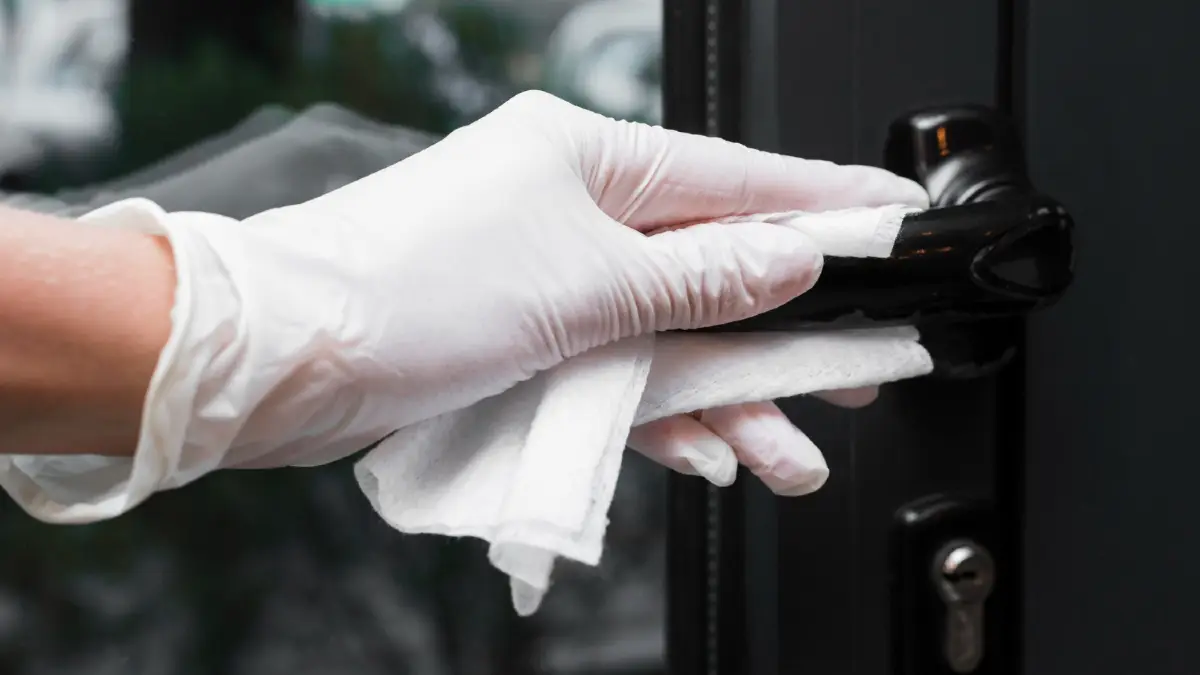
Now you know the truth about hotel cleanliness. Here are hotel safety tips that will keep you healthy during every stay.
Never use drinking glasses without washing them yourself first. Rinse with hot water, scrub with soap, and dry with your own towel. Or better yet, bring disposable cups. Your health is worth the extra effort.
Strip beds immediately upon arrival. Remove bedspreads, decorative pillows, and throw blankets the moment you walk into your room. These items haven’t been washed in weeks. Fold them and put them in the closet or on chairs.
Pack a travel safety kit with disinfecting wipes, travel-size antibacterial soap, and a portable UV sanitizer. Disposable plates and cups eliminate contamination risks entirely.
Clean high-touch surfaces yourself. Wipe down TV remotes, phones, light switches, door handles, and thermostat controls before touching them. This hotel room disinfection takes two minutes but prevents serious illness.
Check for bed bugs systematically. Pull back sheets and examine mattress seams for dark spots, blood stains, or living insects. Check upholstered chairs and curtains too. If you find anything suspicious, demand a different room at least three doors away.
Document everything with photos. Take pictures of any cleanliness problems immediately. This creates evidence for complaints, refunds, or room changes. Hotels respond faster when you have proof.
Book directly with hotels when possible. Third-party booking sites make it harder to resolve problems. Direct bookings give you better customer service access when things go wrong.
Know when to demand room changes. Visible mold, strong odors, stained bedding, or bed bug evidence requires immediate room switching. Don’t accept “we’ll clean it” – protect yourself hotels by insisting on a different room.
Read recent reviews specifically mentioning cleanliness. These provide current information about property conditions. Look for patterns in complaints about specific room types or floors.
Trust your instincts. If something looks or smells wrong, speak up immediately. Your travel health safety depends on taking action when you spot problems.
These steps take five extra minutes but can save you from serious illness and ruined vacations.

